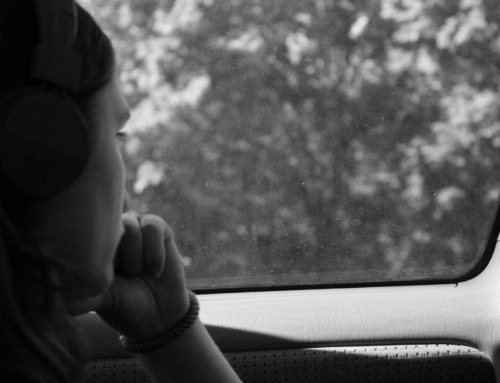What does “dying with dignity” mean, and what has it come to?
According to the World Health Organization, “All people have a right to receive high-quality care during serious illness and to a dignified death, free of overwhelming pain and in line with their spiritual and religious beliefs.”
In 2015 the right to die via lethal injection was enacted by the Supreme Court of Canada. The newly introduced law meant that a patient with a medical condition causing severe suffering, by the patient’s definition, could opt to die via lethal injection and this decision could be arrived at whether or not palliative interventions could aid in significant relief thereby possibly improving quality of life. If the patient wanted to die, it was their choice.
Each province within Canada administers its own health care system and have since passed provincial laws to accommodate the legalization of euthanasia.
This has caused obvious problems for doctors who wish to remain true to the Hippocratic oath they have taken, and for those doctors who fiercely revere the sanctity of life. Doctors who have wished to not participate in aiding patients to die have been able to refer them to a practitioner who will oblige the patient’s wishes. However, this issue has been brought before the courts on several occasions, with the outcome being quite straightforward according to Canadian judges:
“Health care professionals who are unwilling to accept these limits have two choices: select an area of medicine, such as radiology, that will not put them in situations that conflict with their personal morality or, if there is no such area, leave the profession.”
Along with euthanasia being legalized, it has been interpreted as a guaranteed human right causing extreme conflict for some within the medical community.
What does that mean for palliative or hospice care facilities? Those that enter these facilities most often have been diagnosed with a serious or terminal disease where the focus is placed understanding treatment options, identifying and carrying out goals in terms of relieving pain, and meeting practical, emotional, and spiritual needs thereby improving the quality for the remainder of their life.
Some who have reflected on their experience in palliative care have said they felt recognized as a person, felt they were in control of their medical care choices, were able to be connected with their family, and experienced physical comfort.
Often palliative care can be provided at home, offering assistance with shopping and respite care for caregivers.
In BC MAID (Medical Assistance in Dying) is only provided to legally eligible patients and eligibility is based on the following factors:
- Be eligible for health services publicly funded by a government in Canada, such as being registered or eligible for B.C.’s Medical Services Plan;
- Be at least 18 years of age and capable of making decisions about their health;
- Have made a voluntary request for medical assistance in dying that, in particular, was not made as a result of external pressure;
- Have given informed consent to receive medical assistance in dying after being informed of the means that are available to relieve their suffering, including palliative care; and
- Have a grievous and irremediable medical condition, which means:
- they have a serious and incurable illness, disease or disability;
- they are in an advanced state of decline that cannot be reversed;
- that illness, disease or disability or that state of decline causes them enduring physical or psychological suffering that is intolerable to them and cannot be relieved under conditions that they consider acceptable; and
- their natural death has become reasonably foreseeable, taking into account all of their medical circumstances, without a prognosis necessarily having been made as to the specific length of time they have remaining.
There are Federal and Provincial safeguards in place to vulnerable people are protected:
Federally:
- A person’s request for medical assistance in dying must be made in writing and signed and dated in front of two “independent witnesses” (see below), who must also sign and date the request.
- A person’s request must be signed and dated after they have been informed by a doctor or nurse practitioner that they have a medical condition that fits the “grievous and irremediable” criteria.
- Two independent doctors or nurse practitioners must assess the person to confirm their eligibility.
- A person must be given the opportunity to withdraw their request throughout the process, including immediately before being provided with medical assistance in dying.
- A person must be given a period of reflection of at least 10 days from the date they signed their request unless both practitioners agree that a shorter period is appropriate in the circumstances.
- Medical assistance in dying can only be provided to persons who can give consent. Consent through an alternate or substitute decision-maker or through a personal advance directive is not applicable. (If a person is capable of providing informed consent but is physically unable to sign a request, another person may sign the request under the patient’s express direction).
Provincially:
- A regulated health professional must witness an eligibility assessment conducted via the Telehealth videoconferencing system. (A Telehealth assessment would be arranged by the doctor or nurse practitioner.)
- If one or both doctors or nurse practitioners are concerned about a patient’s capability to provide informed consent, they will request a capability assessment from a third doctor or specialist.
- The pharmacist must dispense the drugs directly to the prescribing doctor or nurse practitioner and the prescribing doctor or nurse practitioner must return any unused drugs to the pharmacy.
- The doctor or nurse practitioner must be present with the patient during the self-administration or administration of medical assistance in dying and remain with the patient until death is confirmed. This may not be delegated to another person or professional.
With these laws in place and the guaranteed human right of death, medical facilities are now being forced into performing euthanasia within their own walls no matter how their directors feel about the issue.
Recently, in BC an issue arose with the Dignity Hospice Board who wanted to enforce their philosophy of life with dignity. Hospice was originally founded in the 1960s by Dame Cicely Saunders, who was a great medical humanitarian. Her vision was to bring those who were dying out of hospitals and into patient’s homes or local care facilities allowing for non-institutional care. Suicide prevention was a hospice service alongside effective pain management. Saunders was vehemently opposed to legalizing assisted suicide, and she viewed it as a “crass denial of dying patients’ intrinsic human dignity.”
According to Dr. Ira Byock, a palliative care expert, “deliberately ending the lives of ill people represents a socially erosive response to basic human needs.” Instead, Dr. Byock feels that medical professionals should step up their care of the dying with better medical training and improved regulation, which would include removing the “forced choice” of continuing allopathic treatment or entering hospice.
From a hospice perspective, MAID is not well favoured or part of their mandate in the least. However, in BC according to a recent article in the Globe and Mail, The Delta Hospice Society may face penalties if it fails to make MAID available. According to BC’s current Health Minister Adrian Dix “We’ve asked them … to provide their plan to fulfill their contract with the Fraser Health Authority and it is our expectation that they will, should they not want to fulfill their contract with Fraser Health, there may well be consequences of that.”
In September 2019, Nancy Macey, the founder and executive director of the Delta Hospice Board, was terminated by the board of directors as she held her ground that those who wished to terminate their life would need to be moved to another facility.
Interestingly, in November of 2019 at the Delta Hospice Board’s AGM, those from that same board who wished to allow MAID, and who had terminated Macey, were overthrown and the decision to allow MAID was withdrawn.
The main issue at hand is that the hospice receives funding from Fraser Health, and as such is obliged to comply with the rules.
Interestingly, doctors in BC who perform MAID services are also being compensated more.
With all this pressure to allow medically assisted death as an option, how vulnerable are those who are facing a terminal illness whether in a hospital, hospice care or palliative care?
A look at recent headlines both in Canada and wherever euthanasia has been legalized will tell you that we are on shaky ground when it comes to euthanasia. In the Netherlands about three years ago a woman was euthanized against her will and her doctor is not facing any kind of reprimand.
November 2016, a woman in BC was reportedly euthanized against her will for having only a bladder infection.
For those who are in a situation where palliative or hospice care is the next viable option, how are they or their families to feel safe leaving their lives in the hands of the caregivers when it has taken so long to convince people that hospice or palliative care is not just somewhere you go to simply die.
What hope is there for those who have at one time opted to sign paperwork stating that should their life become so completely unbearable, they would then chose MAID, to not be “offed” by a doctor feeling that a bladder infection or the flu is the right time to carry out those wishes?
Where do we draw the line? How can we know that care providers won’t just see a time of depression due to illness, whether signifying the end or not is the time to begin to carry out MAID?
What are your feelings about the subject? We would like to hear your comments.





